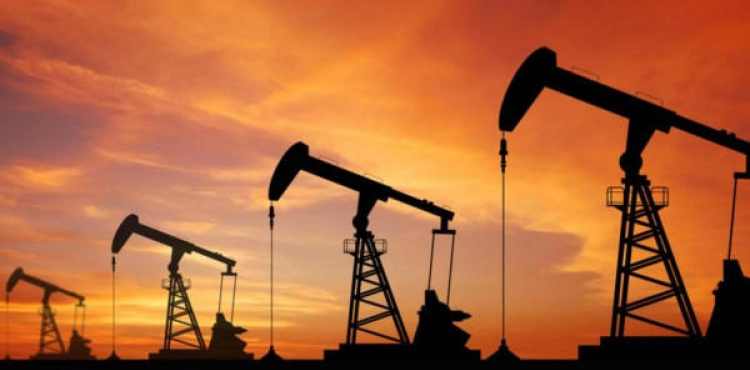World oil prices hit a record high early Monday in the wake of an attack by Yemeni rebels on oil facilities in Saudi Arabia using drones on Saturday.
In an exceptional start to the week´s trading, Brent crude oil futures jumped around $ 12 a barrel just seconds after the start of trading, the biggest dollar increase in Brent crude since the start of futures data.
Prices have since fallen to lose about half of the increase and crude is trading at around $ 67 a barrel, but is heading for the largest daily increase since 2008.
Officials at Saudi Aramco have become less optimistic about the possibility of restoring normal oil production and overcoming the consequences of a drone attack on the Saudi oil refinery in the eastern Abqaiq region on Saturday, sources familiar with the matter said.
According to Bloomberg, all eyes are now focused on how quickly Saudi Arabia will restore normal production levels, following an armed attack on Saudi oil facilities on Saturday, which has reduced oil supplies on the world market by about 5% and a record rise in prices. World Oil.
Saudi officials initially thought that much of the productive capacity affected by the attack could be recovered within days, but it appears to be taking longer, according to one source.
On Saturday, drones attacked the oil refineries of Abqaiq and Khurais, affiliated to Saudi Aramco, in the east of the kingdom. While the Yemeni Houthi group claimed responsibility for the attack, the United States blamed Iran for the attack.
The suspension of the Abqaiq refinery, which produces about 5.7 million barrels of oil per day, or nearly half of Saudi Arabia´s production, represents the worst sudden turbulence in the global oil market.
Saudi Aramco has used its offshore fields to offset part of its oil production losses. At the same time, Saudi oil customers resorted to the use of reserves to compensate for the shortage of supplies, while other customers began to buy other types of crude to make up the shortfall.
In addition to direct losses in oil supplies as a result of these attacks, there are fears of a US reaction against Iran, which Washington accuses of being responsible for attacks by pro-Iranian Yemeni Houthi militants. US Energy Secretary Rick Perry said Iran was causing "enormous devastation" in the Middle East, but pointed out that so far there was no indication that strategic global oil reserves were needed to help cope with the decline in Saudi oil supplies.
Perry said the United States held Iran responsible for the attack on an oil facility in Saudi Arabia. Perry said that based on a conversation with his Saudi counterpart, one-third of the plant´s production could be restored before the end of working hours.
"The market has a lot of oil," Perry told CNBC.
He said it was still "too early" to withdraw from the reserves, adding that in recent years, the United States has increased production of shale gas.
Perry described Iran as a "crazy neighbor" and urged the formation of a "coalition of rational oil producing and consuming countries to work together to stop Iran´s malicious activities."












